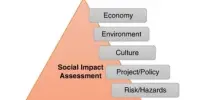Psychological testing measures an individual’s performance at a specific point in time right now. Psychologists talk about a person’s “present functioning” in terms of their test data. Therefore psychological tests can’t predict future or innate potential.
Psychological testing should never be performed in a vacuum. A part of a thorough assessment of an individual is that they also undergo a full medical examination, to rule out the possibilities of a medical, disease or organic cause for the individual’s symptoms
Some of the specific types of psychological assessment we conduct are:
Learning Disability Evaluation – A learning disability evaluation assesses your child’s learning capacity in specific areas such as math, reading, and writing. A learning disability evaluation also assesses thinking components that underlie the learning process such as receptive and expressive language abilities, verbal and non-verbal reasoning ability, memory functioning, attention and focus. It is also often necessary in learning disability evaluations to assess emotional and behavioral functioning, as these challenges can also greatly interfere with learning. This type of psychological assessment is designed to answer questions about a child’s capacity to learn overall and in specific subjects or on specific tasks.
ADHD Evaluation – An ADHD evaluation assesses your child’s ‘executive functioning’ and behavioral functioning as it relates to a diagnosis of ADHD. Executive functioning is a term used to describe many thinking components such as attention, focus, memory, planning and inhibiting behavior when necessary. This type of psychological assessment evaluates these thinking components as well as the behavioral and emotional challenges that often occur when a child has ADHD. Results help to inform formal diagnosis, school accommodations, educational planning, and emotional and behavioral treatment.
Behavioral Problem Evaluation – A behavioral problem evaluation assesses problematic behavior patterns to help parents (and teachers) understand why a child is behaving in a certain manner and to help parents (and teachers) learn what can be done to help decrease unwanted behavior. This type of psychological assessment is tailored to the specific type of behavioral difficulty your child is experiencing and may entail testing that evaluates his or her intellectual functioning, academic functioning, social functioning, and/or emotional functioning.
Emotional Problem Evaluation – An emotional problem evaluation assesses the types and patterns of emotions that are causing your child’s distress. This type of psychological assessment is tailored to the specific issues your child is facing and may include tests that assess your child’s intellectual functioning, social functioning, and/or behavioural functioning.
Developmental Evaluation – A developmental evaluation assesses your child’s intellectual, behavioral, and emotional functioning. Additionally, developmental evaluations assess your child’s adaptive functioning. Adaptive functioning is your child’s capacity and tendency to behave in a manner that meets his/her needs and meets expected standards of personal independence and social responsibility. This helps to inform parents and teachers how the child is functioning at home, school and in the community.
















